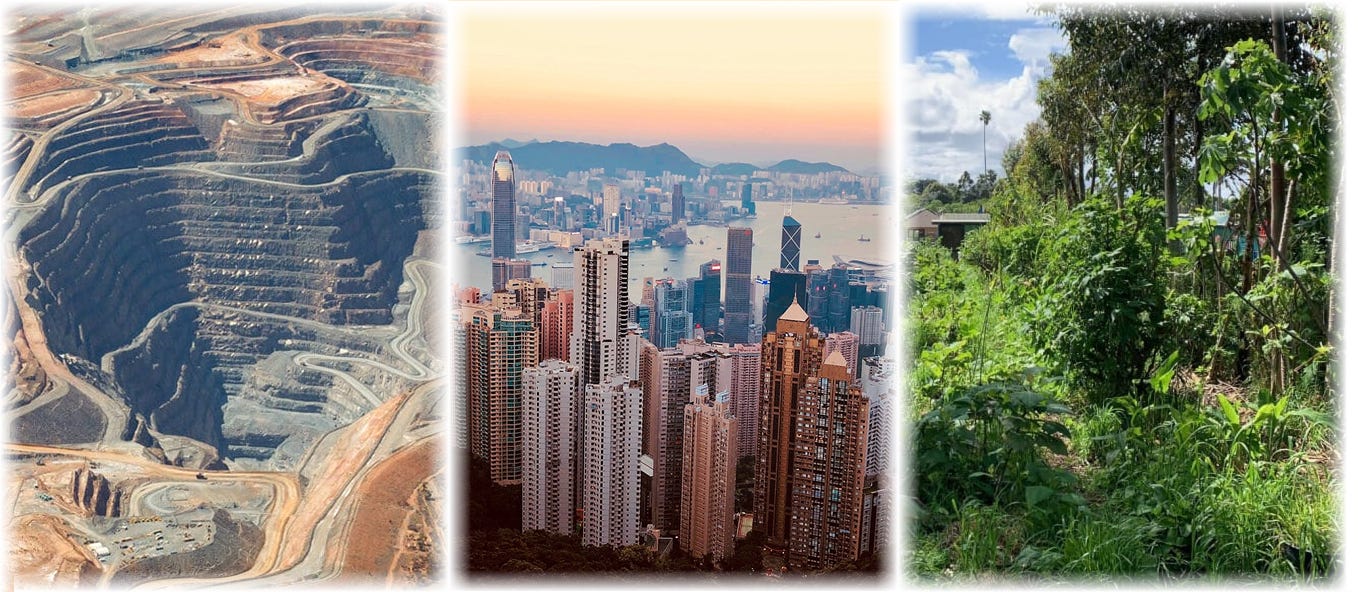Money and Nature
Can we rediscover nature as kin, not as commodity, and find ways to incentivise regeneration?
Just remember that you're standing, on a planet that's evolving, and revolving at nine hundred miles an hour - Galaxy Song, by Monty Python
Evolving. Now there’s a word that if pondered for a moment, should make your hair stand on end and fill you with wonder.
Earth formed around 4.5 billion years ago. If all time since then was put on a 24 hour clock, Photosynthesis and oxygen came 2.5 billion years ago ~10:00 am, and Homo Sapiens appeared around 300,000 years ago, at 11:59:56 pm - four seconds before midnight, on the first day of the evolution of planet earth, nature expressed herself in the form of Homo Sapiens.
At this point in our complex four second experiment, we have this thing called human civilisation, where power is given away to politicians. Politicians who are a tiny fraction of the world’s population, yet wield outsized decision-making power and influence, particularly in setting the narratives around nature vs. economy. When asked about nature, they make statements like this:
“Brazil should not have to sacrifice its economy for the sake of preserving the Amazon.”
Brazil’s President Jair Bolsonaro (2019)“Fast-tracking major infrastructure projects will boost our economy and jobs, even if it means some environmental concerns.”
New Zealand Government (2024)“Development is essential, and we can’t let environmental concerns completely halt our progress.”
India’s Environment Minister (2020)“We are not going to save the planet by bankrupting the British people.”
UK Prime Minister Rishi Sunak (2023)
The uninspected assumptions we grew up with were given to us by our parents and teachers, who in turn got these assumptions from their big people when they were small. One of these assumptions is that money is of supreme importance, even more important than nature.
We cite evidence through stories and one-liners, which perpetuate this ‘self-evident truth’. We swim in a money economy and can’t imagine anything else.
Nature is a resource and resources are to be used.
You can’t stop progress.
Growth is good.
We can’t be held hostage by environmental concerns.
These phrases normalise extraction, control, and pricing of nature, hiding our dependence on healthy living systems for water, food, air, and stable climate.
However, with a little reflection it should be clear that no nature means no life. On the other hand, no money might mean disruption of trade, but it doesn’t mean the end of life.
Money is a human construct, something we as humans created with our left-brained, logical thinking. It was developed as a tool for facilitating trade, and trade was a means for getting more of the things the inventors of money wanted. Unfortunately money turns out to support the extractive system which has been raping nature, taking the abundance she has.
Human beings with a scarcity mindset created money, then sought to get rich by extracting from nature. Value became associated with dead whales, piles of trees, shiploads of fish.
Yes, let that sink in.
Give space for your sadness - yes!
Your fear - yes!
Your anger - yes!
If the outcome of our extractive economy means that fresh water and nourishing food become hard to find, will money seem so relevant?
It took 23 hours 59 minutes and 56 seconds of the 24 hour evolutionary clock, to put all the pieces together and create Homo Sapiens.
When we rediscover nature as kin, not as commodity, perhaps we can find ways to have money incentivise the regeneration of the nature we are part of and depend upon.


